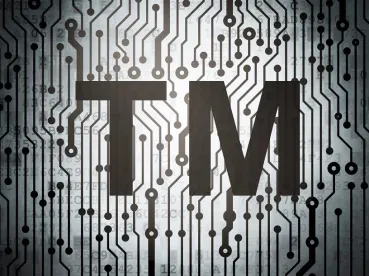After years of litigation, two retail companies - Lucky Brand Dungarees, Inc. and Marcel Fashions Group - will have their most recent case heard by the United States Supreme Court.
In 2001, Marcel Fashions sued Lucky Brand for infringement of their “Get Lucky” mark, a dispute that was resolved with a settlement agreement. Within the agreement, which provided for Lucky Brand’s cessation of the use of “Get Lucky,” Marcel Fashions agreed to release certain potential claims arising from the use of its trademarks. Both parties interpret the Release differently, with Marcel Fashions contending that it refers only to Marcel’s release of infringement claims that occurred prior to the 2003 execution date and Lucky Brand maintaining that it refers to Marcel’s release of any claim of infringement of any trademark registered prior to said date. In 2005, Lucky Brand sued Marcel Fashions for their issuance of a license for the use of the “Get Lucky” mark. Marcel returned with infringement claims of its own and claims that Lucky Brand had violated the settlement agreement. Though Lucky Brand initially asserted the 2003 Release as a defense, it did not maintain the assertion throughout the dispute’s proceedings. When the jury found in favor of Marcel Fashions, the district court issued an injunction prohibiting Lucky Brand’s infringing use of the mark. The current case is a 2011 suit brought by Marcel Fashions alleging that Lucky Brand’s continued use of the mark violates that injunction. On remand, after an unsuccessful motion for summary judgement on the basis that claim preclusion prohibited Marcel’s claim, Lucky Brand cited the terms of the Release as its defense. The district court agreed that, with the Release, Marcel had waived its claims of infringement of the mark. Upon Marcel’s appeal, the 2nd Circuit Court of Appeals addressed “whether a party can be barred by claim preclusion doctrine from prosecuting a litigation defense in a situation in which it is outcome determinative.”
In its Opinion, the Court of Appeals acknowledged that, although previous cases in its Court have established that claim preclusion may bar litigation defenses, the parameters of defense preclusion have not yet been established. To do so, the Court looked to Supreme Court case Parklane Hosiery Co. v. Shore, wherein the Supreme Court decided that there is no inherent difference between offensive and defensive issue preclusion that would allow for the complete prohibition of the former and not the latter. Though issue preclusion differs from claim preclusion, the 2nd Circuit Court of Appeals saw this ruling as an important framework in the analysis of defense preclusion. Just as with claim preclusion, defense preclusion promotes efficiency within the courts and ensures that victorious parties do not have to repeatedly litigate matters. Further defining defense preclusion, the Court wrote in its Opinion that, similarly to the Supreme Court’s Parklane ruling, there are certain scenarios where barring a defendant from asserting a defense can be unfair. Accordingly, the 2nd Circuit granted the lower courts the discretion to determine when and to what extent defense preclusion should be applied.
The Appellate Court ruled that Lucky Brand’s inexplicable failure to adequately put forth the Release defense in the 2005 dispute violates the efficiency concerns of defense preclusion, overriding any fairness concerns. Further, because Marcel seeks enforcement of the 2005 injunction, the Court found Lucky Brand’s assertion of the Release defense subsequent to the complaint especially suitable for preclusion. The Court vacated the district court’s ruling and remanded the case for further proceedings, barring Lucky Brand from asserting the defense.
I believe that the Supreme Court should reverse the 2nd Circuit Court of Appeals’ ruling and hold that neither claim nor issue preclusion apply and, therefore, Lucky Brand is not barred from using the Release defense. Lucky Brand’s contention that the Release negates liability for any infringement of the “Get Lucky” mark is an affirmative defense. This contention, as a disputed fact central to the overall claim of infringement, is an issue. Accordingly, issue - not claim - preclusion is relevant in this case. A key requirement of issue preclusion is that the issue must have been fully litigated and decided in a prior proceeding. Since the Release defense was never argued and decided in any previous dispute between the parties, it matters not that Lucky Brand could have asserted the defense. The Supreme Court should remand the case to the lower courts so that they may decide on the issue of the scope of the Release and, subsequently, the merit of Marcel Fashions’ claim of infringement.
This post was written by Sophie Houenou, who is an intern in Womble Bond Dickinson’s Atlanta office. The opinions expressed in this article are hers.



 />i
/>i

